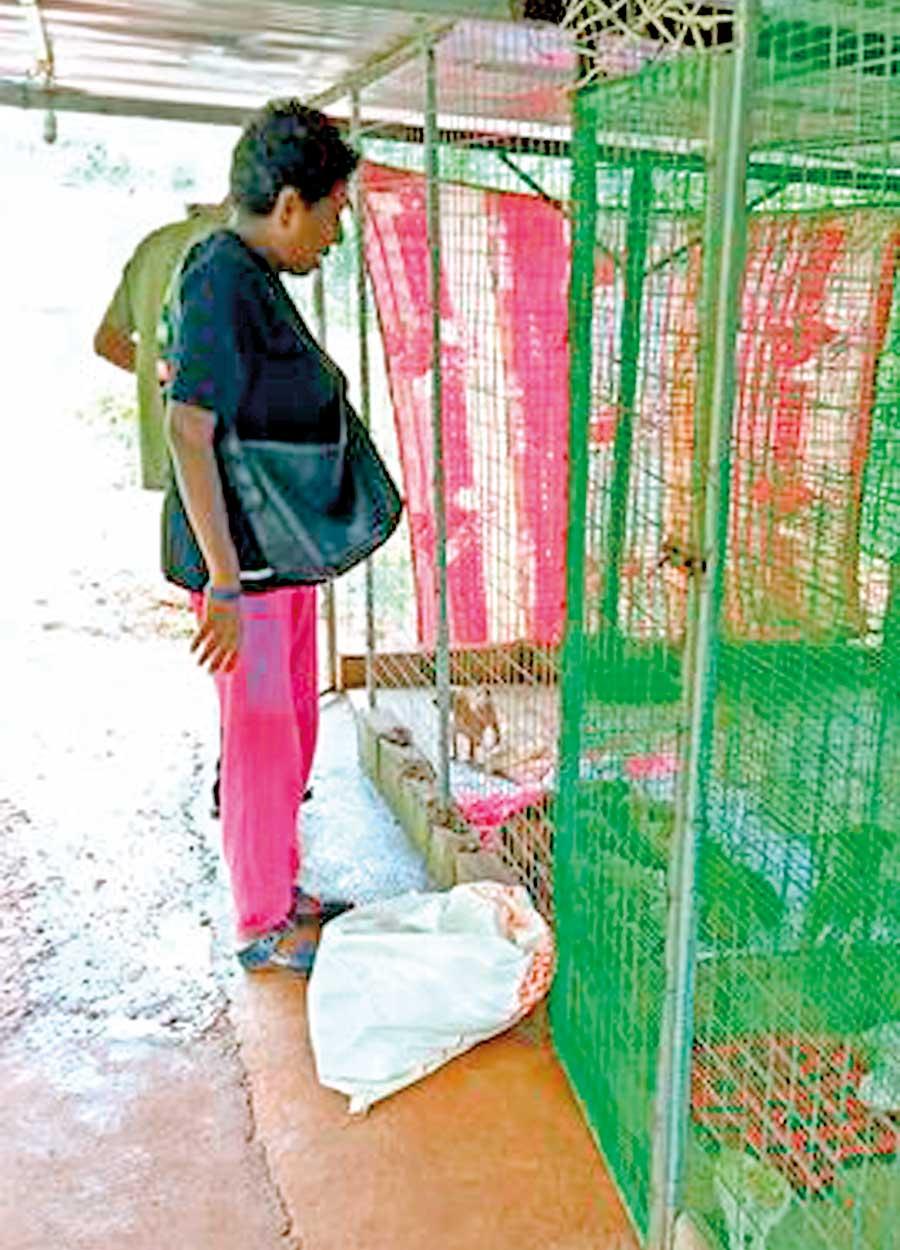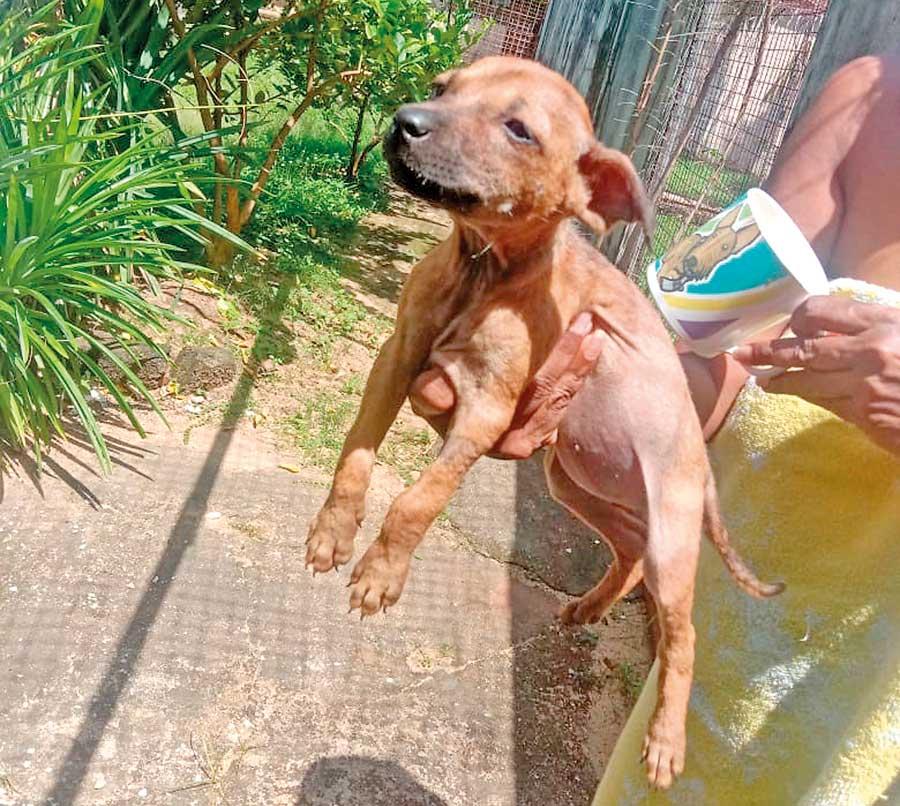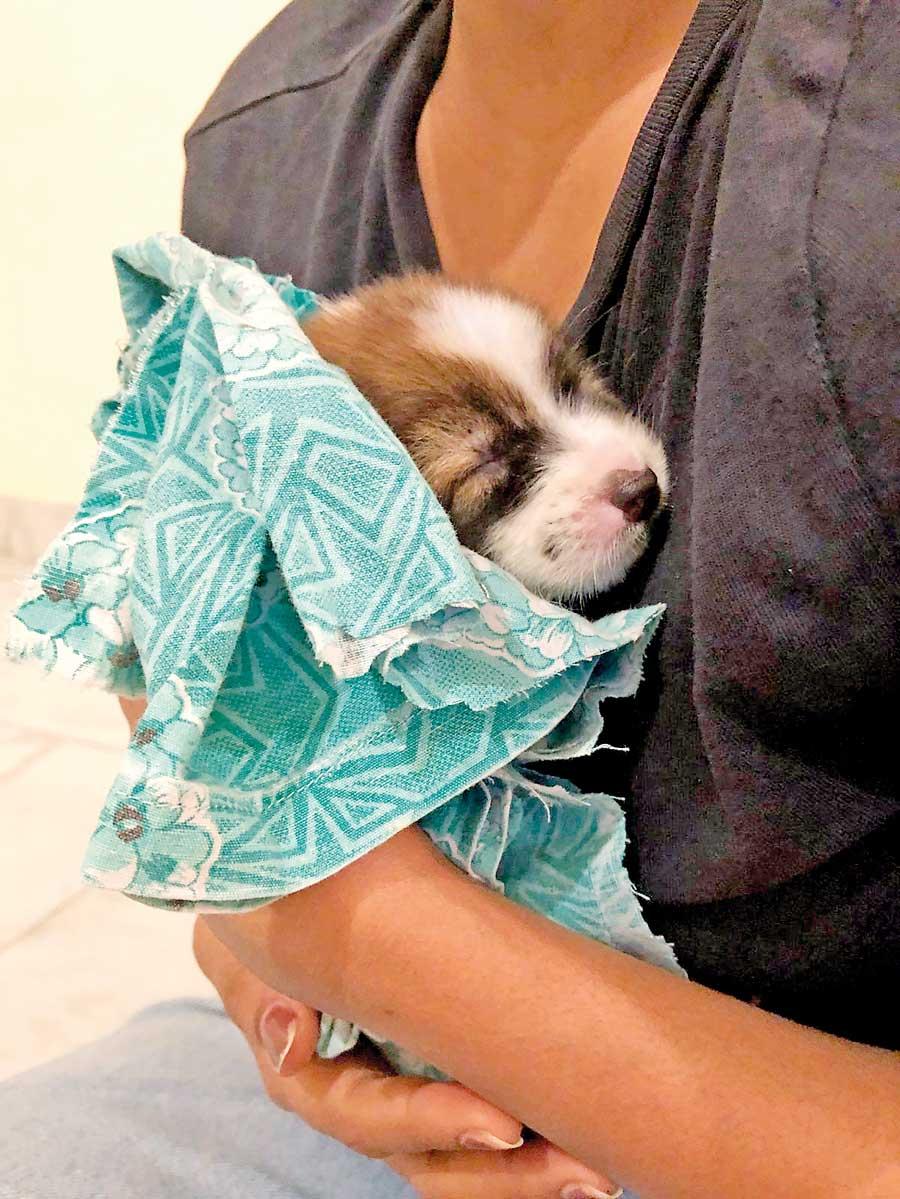Reply To:
Name - Reply Comment
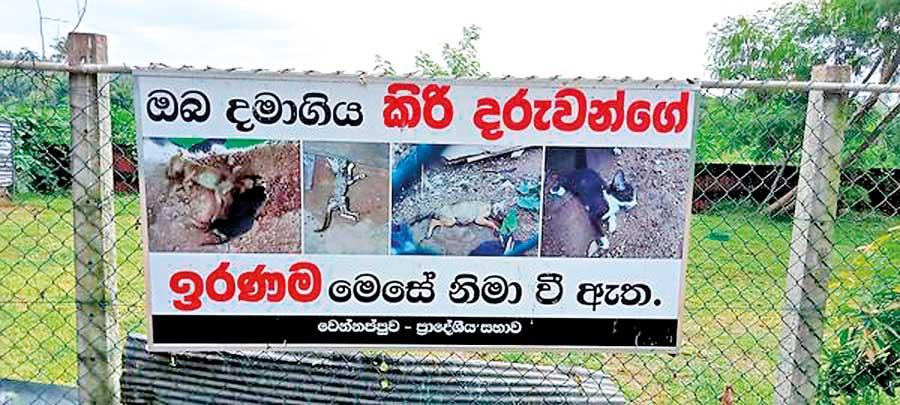
In animal welfare, like in much else, good intentions alone aren’t enough. It takes know how – how to care for cats, dogs and other animals – how to plan for feeding, veterinary care and maintenance of a shelter. Sunakha Sevana in Wennappuwa is a good example of a shelter started with the best of intentions without proper planning. If the Animal Welfare Trust (AWT) hadn’t stepped in, more than forty pups in the shelter would have succumbed to disease and neglect.
maintenance of a shelter. Sunakha Sevana in Wennappuwa is a good example of a shelter started with the best of intentions without proper planning. If the Animal Welfare Trust (AWT) hadn’t stepped in, more than forty pups in the shelter would have succumbed to disease and neglect.
Sunakha Sevana was established in March this year by the Wennappuwa Provincial Council to answer an urgent need to control the stray dog and cat problem in the area. A shelter was built in what was a refuse dumping ground.
"Sunakha Sevana was established in March this year by the Wennappuwa Provincial Council to answer an urgent need to control the stray dog and cat problem in the area"
“After we started this, people began dumping their pups and kittens here,” said Wennappuwa Provincial Council chairman Susantha Perera. “We don’t even have a gate for this shelter. We did our best and several animal welfare organizations came here to help with vaccinations and veterinary care.”
But these efforts were simply not enough as more and more pups were being dumped, and the relief efforts were not co-ordinated. Feeding the increasing animal population too, was a problem until a young Catholic priest stepped in. But many of the pups began falling ill and dying.
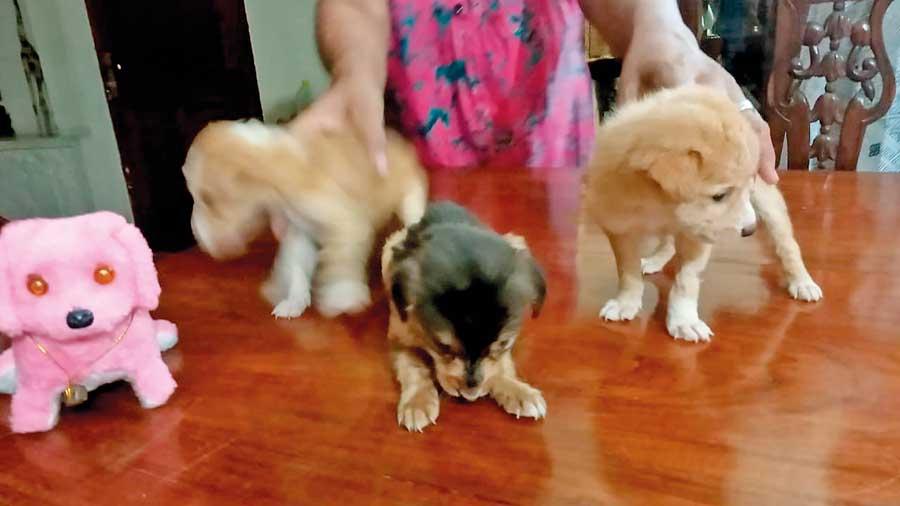
According to AWT secretary Visakha Thilakaratne, there were more than forty pups, many of them very ill, in the shelter when the AWT team went there.
“The problem obviously is lack of knowledge as to how to properly run a shelter for animals. We rescued 40 pups and put them in volunteers’ homes. They were given immediate vet care. We did our best, but only 13 have survived.”
Pups (and kittens, or any animal in the early stages of life) are as fragile as babies. Without care, their chances of survival in the open are minimal. Despite this, people keep dumping pups and kittens in the streets and garbage dumps. During a visit to nearby Udappuwa, I saw a dogs’ hell in the garbage dumps. As poverty levels increase with the pandemic, this habit will only get worse as many find it hard to feed and care for their pets. Dumping of animals in public areas should be made illegal. But what is urgently needed is an awareness campaign about the downside of this nasty practice, and also instruct and urge people to get their dogs and cats sterilised.
"One individual helper who should be mentioned is Ruwan Douglas. He’s a professional dog handler well known within the animal welfare community. He answers calls daily from not just pet owners but people who want to help stray dogs and cats in distress, crippled in accidents etc. But all these people are facing personal issues"
There are several organizations actively engaged in animal welfare, including the AWT, and their work to help the stray animal population in the country, to keep the numbers down with sterilisation campaigns and to re-home them as much as possible is admirable. But this is an increasingly uphill battle, made worse by the breakdown of services brought about by the pandemic.
In my own Colombo neighbourhood, the municipal vet’s office gives anti-rabies vaccines annually to the stray dogs in the area. But this hasn’t been done so far this year. When I asked the vet if they are short of vaccines due to funding cuts, I was told that the vaccines are available. But no vaccinations have been carried out so far.
After it was made illegal to catch and destroy stray dogs in the 1990s, each municipality was given facilities to vaccinate and also sterilise stray dogs in their areas. But the efficiency of how this is carried out depends on the nature of each authority. It’s the private organizations and volunteers who have borne the brunt of this formidable task. This is admirable as, no matter what the Central Bank and related pundits claim, this is still a poor country (was so even before the pandemic). Even wealthy countries such as the United States resort to euthanising of stray dogs in shelters if homes are not found for them.
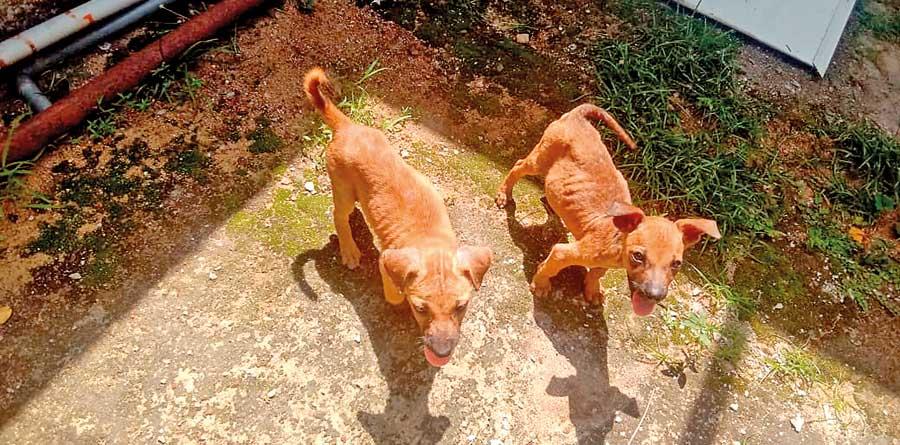
It’s the poorer countries where people and the authorities make an effort to keep the strays alive. Turkey is a very good example of this. In Sri Lanka, however, the downside is that animal welfare activists’ best efforts are hampered by people dumping pups and kittens in the streets. Another factor is the reluctance of many to get their pets sterilised due to misguided religious beliefs.
Visakha Thilakaratne added that many people and organizations outside the AWT helped this rescue effort with food, medicines, veterinary care and re-homing. The individuals are too numerous to be mentioned here, but the AWT is grateful to everyone involved, including Embark and Bow Wow.
One individual helper who should be mentioned is Ruwan Douglas. He’s a professional dog handler well known within the animal welfare community. He answers calls daily from not just pet owners but people who want to help stray dogs and cats in distress, crippled in accidents etc. But all these people are facing personal issues – in Ruwan’s case, his rented house in Templars’ Road, Mt. Lavinia is a well known dog shelter. He’s been there for more than a decade but is being asked to move out by the new owner.
An important lesson is there to be learnt from the Sunakha Sevana episode. Running an animal shelter is a complicated task and good intentions alone are not enough. But this is the tip of the iceberg as such situations exist all over the country and volunteers and organizations can’t be everywhere to help. Many are struggling with tight budgets as cost of living, medicines and transport keeps skyrocketing. It’s up to the people of Sri Lanka – stop dumping animals in the streets and get your pets sterilised, or we are heading into a major disaster.
